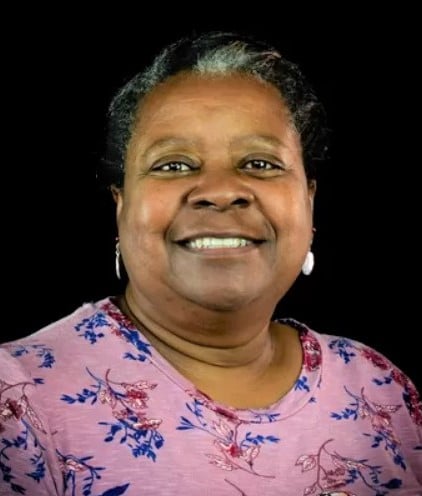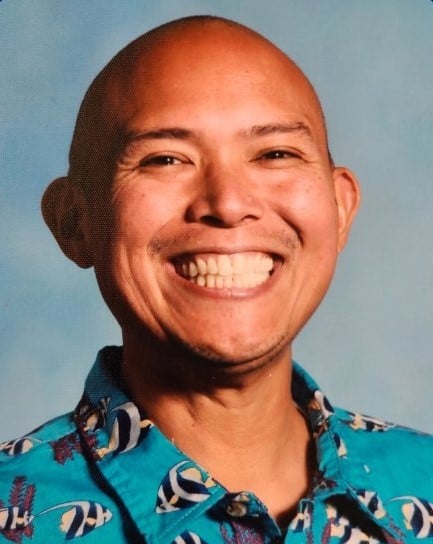SEATTLE – Brenda Fincher remembers seeing signs of racism during visits to family in the South while growing up, signs she said still exist today.
“I thought that I knew a lot about what had happened over the centuries” regarding slavery and racism in the United States, said Fincher, a member of the archdiocese’s Black Catholic Advisory Circle and pastoral assistant for pastoral outreach at Holy Spirit Parish in Kent.
But as she prepared to go on this week’s civil rights pilgrimage to the South with a group from the Archdiocese of Seattle, “I learned things that I still didn’t have a clue of,” Fincher said.
She and a dozen others, representatives of the archdiocese’s schools, missions, youth, young adults, women religious, outreach, Black Catholic and other communities and ministries, left June 19 for the start of the pilgrimage in New Orleans.
“I’m just truly excited,” Fincher said. “For me, it’s once-in-a-lifetime opportunity.”
The pilgrimage aims to provide an experience that combines faith with social justice as the pilgrims learn about the experiences of Black people and Black Catholics. The hope is the pilgrims will return to their communities “to further conversations and create activities within our faith context” that can be shared and used by peers, according to the archdiocese website.


J.C. Santos, a seventh-grade religion/Missionary Discipleship Institute teacher at Our Lady of Guadalupe School in West Seattle, said he is “really passionate about” civil rights and the pilgrimage “sounded like it would be impactful, not just to the way I teach, but to me personally to grow.”
Santos also has a deep passion for Catholic social teaching, and said his students spent a couple of months in the just-ended school year studying those teachings.
“How we’re called to live out (our faith) in society is one of the most tangible ways we can follow Jesus in our lives,” Santos said. “It’s kind of the lightning bolt that energizes me to be a Catholic.”
Learning history at key sites
The pilgrimage group was provided with reading materials by Father Simon Kim, the pilgrimage leader, and met for two online sessions before departing on Juneteenth — the federal holiday celebrating June 19, 1865, the day the U.S. Army arrived to enforce the 1863 Emancipation Proclamation, finally freeing 250,000 enslaved people in Texas.

After the pilgrims arrived in New Orleans, which was a major center of the slave trade, they attended Mass and visited the Whitney Plantation, which was a working plantation that used slave labor for more than 200 years.
“That kind of chokes me up just thinking about it,” Fincher said of the plantation. She advised the group “to be ready for crying from me” during the pilgrimage.
After driving to Montgomery, Alabama, the pilgrims will visit several key sites, including:
- The National Memorial for Peace and Justice, which remembers 4,400 Black people killed by lynching between 1877 and 1950.
- The Legacy Museum, located on the site of a cotton warehouse where Black slaves labored, which tells the story of slavery in America.
- Freedom Monument Sculpture Park, overlooking the Alabama River, where tens of thousands of enslaved people were trafficked.
Continuing on to Selma, Alabama, the pilgrims will walk across the Edmund Pettus Bridge, where in 1965 police beat civil rights protesters who were marching to demand voting rights for Black Americans, in what came to be known as “Bloody Sunday.”
The pilgrims will return to New Orleans for their last two days, attending Sunday Mass at Blessed Sacrament – St. Joan of Arc Parish before returning to Seattle June 24.
Fincher said she is most looking forward to walking across the Edmund Pettus Bridge and attending Mass at a Black Catholic church in New Orleans.
“I’ve been to Black Baptist churches. I’ve never been to Black Catholic churches,” she said.
Santos also was looking forward to visiting the Edmund Pettus Bridge and other sites he has only experienced by seeing them on a screen.
“I tend to get really affected by these sorts of experiences,” Santos said.
Fincher said she is interested to see how the pilgrimage experience will change her. She hopes to return home with more knowledge to help educate people in the church about the realities of racism and “more testimonies to give people … so they may want to go themselves.”
Santos, who is a member of the Life, Justice and Peace Commission at Our Lady of Guadalupe Parish, hopes to continue the conversation after he returns from the pilgrimage.
Catholics, Santos said, “pride ourselves on … universal acceptance of everyone. All walks of life are welcome in our church, so I think civil rights is a great place to look at where in our history that type of inclusion has been a struggle for groups of people, particularly Black Americans.”
“I think it’s integral to our faith to give it a good, honest look,” he added.